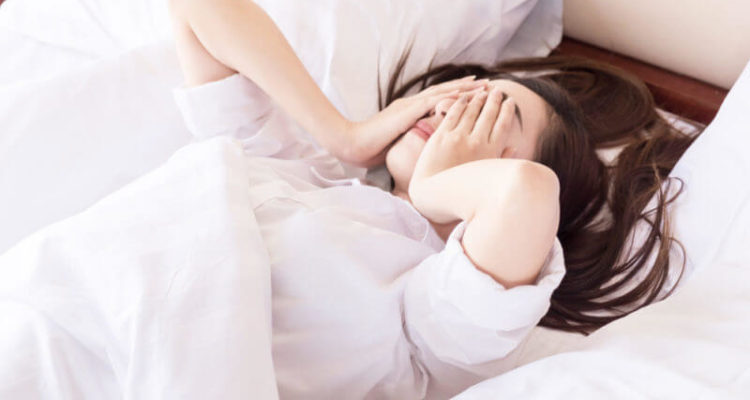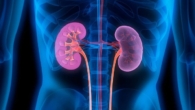
I wake up early and can't fall asleep: why this happens and what to do about it
0
Maybe you're just getting enough sleep. But in other cases, it can indicate health problems.
It is still dark outside the window, the alarm clock is far away, and you are lying down and cannot close your eyes – this state is familiar to many. Waking up too early is a more serious problem than it seems. It prevents a full night's rest, disrupts sleep and wakefulness, and also causes irritability and bad mood during the day. We figured out why this can happen and how to deal with it.
What can early awakening lead to
Waking up two or three hours before the alarm clock is not only upsetting, but can also cause chronic fatigue and increased fatigue, nervousness, reduced work capacity and distracted attention.
Periodic lack of sleep is harmful to both mental and physical health. I. Here is an incomplete list of its negative effects:
- increased appetite and development of obesity;
- violation of immune defense mechanisms;
- increased risk of developing cardiovascular diseases and diabetes;
- increased blood pressure;
- increased risk of developing mental illnesses
- reducing the probability of conceiving a child.
Therefore, you should be careful if you regularly wake up without an alarm clock and there is no light or dawn.
What to do if you have already woken up and can't fall asleep
If you wake up too early and are trying to get back to sleep, the following tips may help:
- Try not to open your eyes. Don't look at the clock. Use a mask if it's too bright in the morning. The less you react to the world around you, the faster you will fall asleep again.
- Think about sleep and rest and try to relax.
- If possible, turn off all sources of noise and light. Maybe they keep you awake.
- Go to the bathroom if you feel the need. She still won't let you fall asleep. You will have to get out from under a warm blanket, but it is better than lying down and suffering, not even giving yourself a chance to fall asleep again.
What reasons can cause early awakening >
Waking up early can be caused by many different reasons, and each of them requires a different approach.
1. Features of the body
How much we sleep depends on circadian rhythms – the internal biological clock of our body. Each person has them individually. It is believed that on average, adults need 7 to 9 hours of sleep.
Like the duration of sleep, the optimal time to fall asleep is different for each person. For example, if your eyes close at ten o'clock in the evening, and 7 hours of sleep is quite enough for your body, it is not surprising that you wake up at five o'clock in the morning. Maybe you just overslept.
What to do
If your circadian rhythms don't bother you and you're perfectly happy with early rises, then there's nothing to worry about. But if you think that you fall asleep too early, then you can try to move the bedtime. Start small: go to bed 15-30 minutes later than usual. After some time, when the body gets used to it, try to add the same amount of time. So gradually you will be able to fall asleep at the desired time and without consequences for the body.
2. Unfavorable conditions for sleep
Normal and healthy sleep is often hindered by conditions in the bedroom. For example, your room may be too hot or too cold. At night, the body temperature drops: this signals the body that it is time to sleep. But if the room is too warm (for example, after sunrise), the body may decide that it is time to wake up.
The optimal air temperature in the bedroom is 19-22 °С.
There may also be too much light, too much noise or not enough oxygen in the bedroom. Another reason for waking up early can be too warm sleeping clothes or bed linen that does not breathe.
What to do
There are a number of sleep hygiene rules, the purpose of which — to create favorable conditions for night rest. Here are some of them.
- Do not bring smartphones, laptops and other gadgets with screens to bed – their glow disrupts circadian rhythms.
- Make sure that the bedroom is dark and quiet, so that no external irritants disturb you, and the bed is pleasant and comfortable. And remember: this is a place for sleeping and sex, not for work, eating and whatever else.
- Air the room before going to bed.
- Try to use it for sleeping. Clothes made of breathable materials. There is also research that wearing socks helps you fall asleep faster and wake up less often.
3. Sleep disturbance
Waking up early can also be a form of insomnia. It is in line with such symptoms of this ailment as difficulty falling asleep, difficulty getting up in the morning and restless sleep. Middle-aged and older people often face this problem.
Another sleep disorder that causes premature awakening can be apnea. This is a condition when a person stops breathing during sleep. In addition to early awakening, it may be accompanied by the following symptoms:
- loud chronic snoring;
- headaches in the morning;
- high blood pressure;
- a feeling of severe fatigue during the day;
- difficulties with morning lifting.
What to do
Sleep disturbances are often caused by physiological reasons and lifestyle features. Here are some tips on how to improve the situation.
- If you suspect that you have apnea, ask your partner, if you are not sleeping alone, if he has noticed the symptoms of this disorder in you – snoring, restless sleep, interrupted breathing.
- Contact a specialist: a therapist, neurologist or somnologist . It will help to understand what is causing your insomnia. Perhaps you will be referred for screening in a dream and prescribed treatment. Do not take sleeping pills without a doctor's prescription.
- Eat properly.
- Reduce alcohol consumption or give it up altogether. As a stimulant, it does not work immediately, but after some time after use. Therefore, alcohol will help you fall asleep quickly, but it can also lead to an early awakening. Nicotine contained in tobacco also negatively affects the mechanisms of falling asleep and waking up.
- Limit the consumption of coffee, tea and chocolate before bedtime. Caffeine is also a stimulant that can disrupt circadian rhythms.
- In order not to get up to go to the bathroom at four in the morning, after which it is difficult to fall asleep, try not to drink a lot of liquids at night.
- Set a quiet time before going to bed. and a relaxing ritual. For example, take a warm shower or listen to calm music.
- Exercise regularly. But the loads should not be excessive. And it is not worth exercising in the evening, shortly before bedtime.
4. Some diseases
Insomnia can cause health problems: they can also cause a person to wake up late. Among them:
- problems with the thyroid gland and hormonal disorders;
- arthritis, neuropathic and other chronic pains;
- allergy or asthma;
- li>
- problems with the gastrointestinal tract;
- neurological diseases.
What to do
In this case, only consulting a doctor and treating the detected disease can help. Do not postpone a visit to the doctor if, in addition to sleep disturbances, you notice other symptoms, such as several days of persistent pain (head or body) or worsening of the common cold in the morning.
5. Psychological problems
Psychological health is also an important factor affecting sleep. In a state of stress or anxiety, the heart beats more often, the temperature rises, the brain centers responsible for vigilance are activated, and the hormone cortisol is produced. The mind in this state jumps from one thought to another.
Experiences related to work, family problems or other reasons can cause a feeling of anxiety that arises at the most inappropriate moments. All this disrupts our internal mechanisms of wakefulness and sleep: a person can wake up both in the middle of the night and early in the morning.
A clear sign of such a sleep disorder is a feeling of well-being and rapid brain activity immediately after waking up.
What to do
A good remedy for insomnia caused by stress is a course cognitive behavioral therapy. Also, anxiety, as a cause of poor sleep, can be treated with medication prescribed by a doctor. A good solution would be to combine medication with a visit to a psychologist or psychiatrist.
Relaxation and mindfulness techniques, as well as meditation, help overcome anxiety. The main thing is not to ignore stress. It is better to fight it right now, and not at four in the morning, when restless thoughts will wake you up.
6. Age changes
Although our internal chronotypes are fairly stable, they gradually change over the course of our lives. Yes, people over 65 years old, unlike younger people, need 6-7 hours of sleep. This is due to age-related changes in the phases of rest: the number of stages of deep sleep decreases over time. And this leads to the fact that a person wakes up more often due to noise, light or touch.
The risk of developing insomnia or apnea also increases in old age. This is because circadian sleep signaling—the mechanism that tells our bodies when to sleep and when to stay awake—weakens over time.
In addition, women may experience sleep problems during the transition to menopause. Up to 61% of women complain of insomnia during this period. Hot flushes and sweating, caused by fluctuations in the hormone estrogen in the body, interfere with sleep and can even wake you up.
What to do
Cognitive-behavioral therapy helps well in fight against insomnia and elderly people. It allows you to adjust the time of sleep and improve its quality.
Estrogen replacement therapy – taking hormonal drugs – helps to get rid of the side effects of menopause. An alternative to it can be taking products and supplements with a high content of calcium, vitamin D or soy.
7. Pregnancy
During pregnancy, a woman's body undergoes significant changes, especially in the early and late stages. For example, the body temperature rises. This can cause problems with sleep, including early awakening. It can also cause bouts of malaise (nausea and vomiting), abdominal discomfort, chest pain, vivid dreams and more frequent urges to the toilet.
What to do
< p>All the symptoms and ailments listed above, as well as lack of sleep in the first months of pregnancy, are considered a normal phenomenon. Sleep problems caused by pregnancy go away after the birth of the child, you just need to follow the daily schedule if possible. But if you feel that you are developing symptoms of postpartum depression, seek help from a specialist.
Sleep is an important part of life, on which our health and psychological state depend. Therefore, any sleep problems are a reason to be wary. If you suffer from insomnia or early awakening for more than a month, consult a doctor.









Leave a Reply